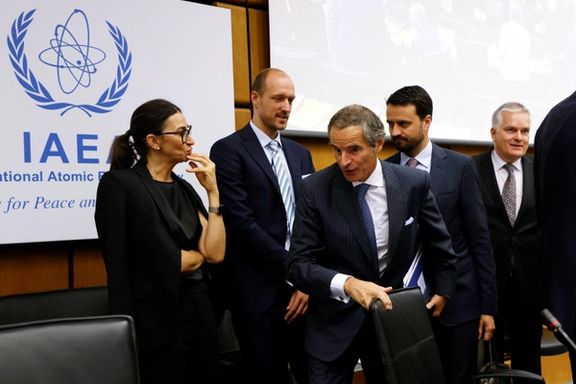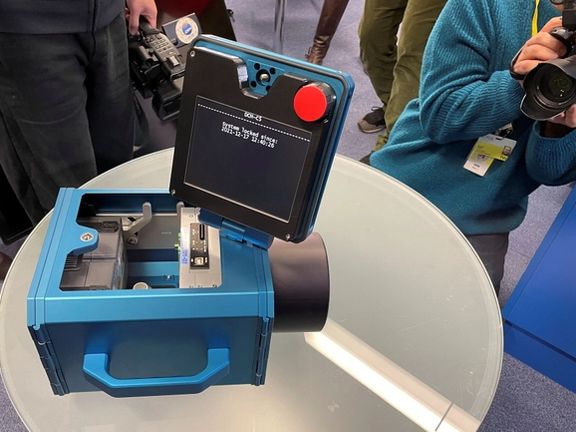UN Nuclear Watchdog Meeting Ends Without Censuring Iran

Another meeting of the Board of Governors of the IAEA continued on Wednesday with no effective step to address the questions surrounding Iran’s nuclear program.

Another meeting of the Board of Governors of the IAEA continued on Wednesday with no effective step to address the questions surrounding Iran’s nuclear program.
Iran is known to have expanded its program significantly since 2018, when the United States unilaterally withdrew from the Iran nuclear deal –or Joint Comprehensive Plan of Action (JCPOA).
On Wednesday, three signatories of the deal, UK, France, Germany (E3) delivered a joint statement at the IAEA Board of Governors meeting, in which they condemned Iran’s lack of transparency with regards to its nuclear program.
The E3 noted that “Iran has not allowed effective verification and monitoring activities in relation to the production and inventory of centrifuges and key components, heavy water and uranium ore concentrate for more than two and a half years.”
Despite their emphasis on Iran’s non-compliance, the E3, much like the US, fell short of introducing measures that would ensure Tehran’s cooperation with IAEA.
In the State Department’s press briefing Wednesday, Spokesperson Matthew Miller refused to comment on why a resolution condemning Iran’s non-cooperation was not introduced at the IAEA meeting. Pressed by a reporter, Miller said the Biden administration would only work with other members “to clearly express that Iran should cooperate fully with the IAEA.”

This was in line with a joint statement delivered to the IAEA Board of Governors meeting on behalf of the US and 62 other member states, including all EU countries, Turkey, Kuwait and Saudi Arabia.
“Iran must provide technically credible answers to the IAEA,” the statement read, “in order to address the Agency’s legitimate questions on the outstanding locations, and to resolve the nuclear material discrepancy relating to its Uranium Conversion Facility.”
One major outstanding issue goes back to January 2023, when the IAEA inspectors at Fordow detected undeclared centrifuge configuration changes as well as particles of uranium enriched up to 83.7%.
In March 2023, IAEA Director General Rafael Grossi, visited Iran and brought back an agreement that was hailed as a breakthrough by both sides, but deemed insufficient and non-binding by its critics.
The agreement (or the Joint Statement) stood on the premise that Iran had “expressed its readiness” to “provide further information and access” and “allow the IAEA to implement further appropriate verification and monitoring activities” on a “voluntary” basis.
Six months on, the premise seems to have been shaky at best. According to IAEA,
The IAEA and the international community seem to believe that Iran’s nuclear program has reached levels not seen in countries without a nuclear weapons program.
Authorities in Tehran, of course, maintain that their nuclear program is entirely peaceful and a national right, based on international agreements. But many experts believe Iran’s nuclear expansion is hard to justify outside a weapons program.
For years, the IAEA has tried in vain to verify the nature of Iran’s nuclear activities, as the regime obstructs inspections and dodges questions in what many see as a time-buying tactic.
The Biden administration has so far been reluctant to exert more pressure on Iran over its nuclear program and has instead endeavored to buy the regime’s cooperation with a side deal.
Other western powers have tried to revive the JCPOA, only to get a taste of Tehran’s intransigence –as clearly voiced in the latest E3 statement at the IAEA Board of Governors meeting: “We have made significant efforts to negotiate and agree a return to the JCPOA, for which viable deals were tabled in March and in August 2022. In both cases, it is Iran that refused to sign these agreements, making unacceptable demands going beyond the scope of the JCPOA.